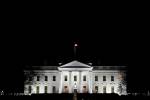EDITORIAL: Trump administration to offer ‘emergency relief’ to farmers
President Donald Trump bragged that trade wars are “easy to win.” He’s now finding they’re also expensive.
On Tuesday, the administration announced it will dole out $12 billion in emergency aid — a “golden crutch,” in the words of one senator — to U.S. farmers feeling the pinch of the president’s overheated trade rhetoric. Mr. Trump has threatened to impose tariffs, which are taxes, on a wide array of imported goods. In response, China, Mexico, Canada and the European Union — large markets for U.S. agricultural exports — have imposed retaliatory levies that financially threaten American farmers.
The escalating battle should be a lesson to the president on the economic benefits of open markets over trade barriers. Instead, Mr. Trump has responded by compounding one mistake with another.
Agriculture Secretary Sonny Perdue insisted this week that the billions in handouts will be a “short-term solution” until the president negotiates better deals with U.S. trade partners. But this is no solution. It’s just the start of many potential pitfalls created by Mr. Trump’s misguided dalliance with protectionism.
“What’s the strategy, what’s the endgame here?” asked Sen. Mike Rounds, R-S.D. “At what point do we start seeing things move out of the chaotic state they are in now and to where we actually see new trade agreements?”
And why stop with farmers? The president has threatened tariffs on European automobile imports, which would surely trigger similar levies on U.S. manufacturers. Do auto workers get a taxpayer check as compensation for the fallout from Mr. Trump’s trade policies? What about tax subsidies to the millions of Americans who will face higher prices for consumer goods thanks to tariffs on imports? Does the president propose a repeat of Smoot-Hawley, a fiasco that helped trigger the Great Depression?
Mr. Trump no doubt views his brinkmanship as a hardball tactic intended to bring concessions. But the farmer bailout highlights real costs stemming from his populist trade appeals and ignores the fact that the best way to help U.S. agricultural producers is to open more markets abroad.
On Tuesday, Mr. Trump offered another trade missive on Twitter: “Both the U.S. and the E.U. drop all Tariffs, Barriers and Subsidies! That would finally be called Free Market and Fair Trade! Hope they do it, we are ready — but they won’t.”
Indeed, abolishing barriers to facilitate the free movement of goods between nations should be the ultimate objective — and, for the most part, the world would be better off under such policies. But if other nations insist on making their citizens poorer through protectionism, so be it. That’s no reason the United States should follow suit.
By midday Wednesday, Mr. Trump and E.U. leaders had agreed to a halt in new tariffs as trade talks continue. That’s good news. Let’s hope it sticks. Perhaps the president is realizing his trade rants threaten not only to harm U.S. consumers and producers, but to undermine the tremendous economic and regulatory progress he’s made during his first two years in office.




























